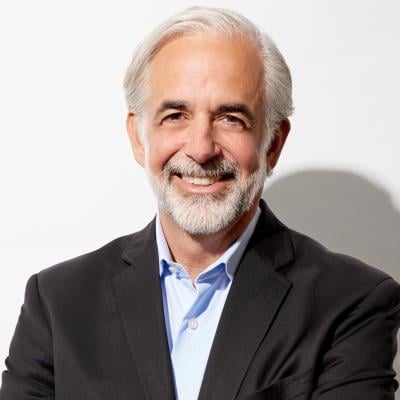Pfizer and Flagship Pioneering have each put down $50 million to build a new pipeline of 10 programs, with the Big Pharma offering the VC firm and its bioplatform companies the chance to make up to $700 million in biobucks for each successful drug.

“The scale, the scope and the intent is really very distinctive,” Paul Biondi, president of Flagship’s Pioneering Medicines initiative and executive partner at Flagship, said about the deal.
Pfizer's CEO Albert Bourla, Ph.D., and chief scientific officer Mikael Dolsten, M.D., Ph.D., have “clearly demonstrated a sense of urgency in creating and delivering important novel medicines to patients,” and that proactivity extends to this partnership, Biondi told Fierce Biotech in an interview.
The collective $100 million upfront will go toward leveraging Flagship’s ecosystem of therapeutic platforms to explore opportunities that could lead to the development of 10 single-asset programs. While Moderna is included in the Flagship ecosystem, Biondi said the partnership will more likely include companies in earlier-stage development.
Excluding Moderna, which has reached pharma's top ranks in recent years, the current Flagship ecosystem spans 40 companies including the likes of Foghorn Therapeutics, Tessera Therapeutics and Axcella Therapeutics.
Alongside Pfizer’s R&D team, Pioneering Medicines will lead the exploration process to drive the potential portfolio creation. Flagship designed Pioneering Medicines to create new therapeutics by expanding the VC firm’s innovations platforms into previously unexplored areas.
Together, Pfizer and Flagship will determine what programs will move forward into development, Biondi said. Pfizer will then fund each selected development program and will later have the option to acquire each program as well. If a product makes it to market, Pfizer could pay out up to $700 million in milestones and royalties per program.
While several programs could come from just one of Flagship's biotechs, Biondi doesn’t think it’s too likely. “Our attempt would be more to come up with concepts that really leverage the diversity of all the different bioplatform technologies that we have,” he explained.
The purpose of the potential programs will be to address unmet needs within Pfizer’s core strategic areas of interest—vaccines, inflammation/immunology, oncology, rare diseases and internal medicine—though the Big Pharma did move away from several of its rare disease programs earlier this year.
“At Pfizer, we are expanding our efforts to pursue potential breakthrough science with unique approaches and funding mechanisms designed to leverage the dynamic scientific ecosystem,” Dolsten said in a July 18 release.
“This collaboration is an exciting opportunity for Pfizer to bring deep scientific expertise and apply our development and regulatory strength to Flagship’s diverse portfolio of technology platforms, translating early-stage innovation to potential medicines,” the CSO added.